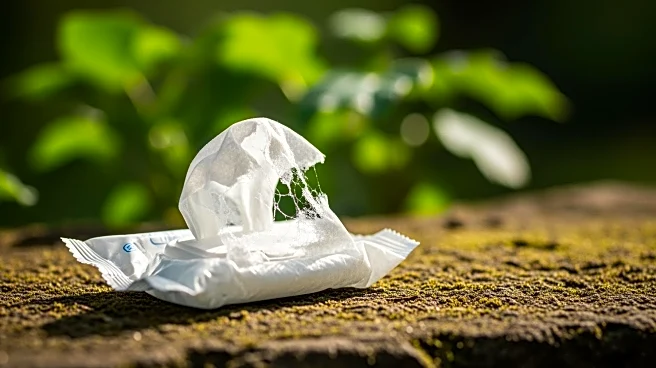What's Happening?
The Environment Secretary, Emma Reynolds, has announced a new law banning the sale of plastic wet wipes in England, set to take effect in Spring 2027. This decision aims to tackle pollution caused by wet wipes, which can block waterways and create 'fatbergs'
in sewer systems. The ban includes a transition period of 18 months for retailers to sell existing stock. Some exemptions are included, such as use by medical professionals. The Welsh government has already introduced similar legislation, and Northern Ireland and Scotland are expected to follow suit by the end of the year. Retailers like Boots and Tesco have already stopped selling plastic-containing wet wipes, opting for biodegradable alternatives.
Why It's Important?
The ban on plastic wet wipes is a significant step in reducing environmental pollution and protecting wildlife. Wet wipes contribute to 94% of sewer blockages, costing water companies around £200 million annually, which is reflected in household water bills. By eliminating plastic wet wipes, the government aims to reduce these costs and environmental damage. This move also aligns with broader efforts to clean up rivers, lakes, and seas, promoting a healthier ecosystem. Retailers and consumers are encouraged to adopt sustainable practices, which could lead to a shift in industry standards and consumer behavior towards more eco-friendly products.
What's Next?
Following the implementation of the ban, the government will consider further restrictions on the manufacture of plastic wet wipes. Retailers and manufacturers are expected to adapt by increasing the production and sale of biodegradable alternatives. The government will continue to urge consumers to avoid flushing any type of wipe and will work with manufacturers to ensure product labeling reflects this message. The success of this initiative could pave the way for additional environmental regulations targeting other single-use plastic products.















